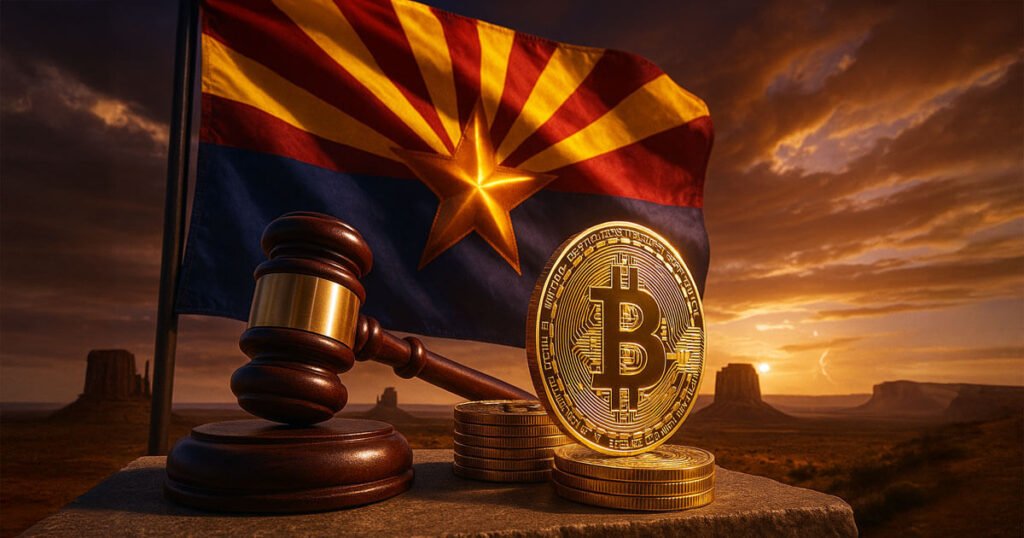Arizona Lawmakers Revisit Bill to Manage Cryptocurrency Reserve Fund
Arizona lawmakers are once again discussing a significant piece of legislation, House Bill 2324, which aims to establish a framework for managing a reserve fund composed of seized cryptocurrencies. Initially rejected in an earlier House vote, the bill has regained momentum after a narrow Senate vote of 16-14 on June 19. This recent development paves the way for the bill to return to the Arizona House for a final reading. If it garners majority support from the House, it will proceed to Governor Katie Hobbs for potential approval.
Key Provisions of House Bill 2324
House Bill 2324 outlines the creation of a “Bitcoin and Digital Assets Reserve Fund” funded entirely by cryptocurrencies seized during criminal investigations. This legislation mandates that the confiscated digital assets be sold through state-approved crypto exchanges or similar platforms to guarantee fair market pricing and transparency. Importantly, some assets may remain in their original form if deemed necessary for ongoing investigations.
According to the bill, the first $300,000 from each forfeiture will be allocated to Arizona’s Anti-Racketeering Revolving Fund. Any surplus will be divided as follows: 50% will go to the same anti-racketeering fund, 25% to the state’s general fund, and 25% to the newly proposed Bitcoin and digital assets reserve fund. This financial structure aims to not only bolster essential state funds but also to create a dedicated resource for future crypto-related initiatives.
Secure Management of Seized Assets
A crucial aspect of House Bill 2324 is the emphasis on the secure storage of seized digital assets. The bill mandates the use of a secure, state-controlled digital wallet, managed by authorized personnel, to minimize risks of theft, loss, or unauthorized access. This provision aims to ensure that the state’s handling of these digital assets is both secure and compliant with legal standards. Furthermore, the law limits its application to digital assets confiscated through actions led by the Attorney General’s office.
Modernizing Arizona’s Asset Forfeiture Framework
The introduction of HB 2324 signifies a notable modernization effort in Arizona’s asset forfeiture laws, especially concerning how digital assets are treated within the legal framework. The bill formalizes the handling of cryptocurrencies in criminal cases, providing explicit definitions and guidelines. This includes protections for innocent third-party owners potentially affected by wrongful confiscations, thus adding a layer of legal safeguards to the process.
Arizona’s Growing Crypto Regulatory Landscape
House Bill 2324 represents a key component of Arizona’s broader initiative to engage more meaningfully with cryptocurrency legislation. Since 2020, lawmakers in the state have introduced more than a dozen blockchain-related bills, addressing various aspects such as reserve strategies and digital asset custody rules. Notably, some of these bills have already been enacted into law, including one allowing the state to claim ownership of dormant cryptocurrencies after three years of inactivity. This legislation also permits the state to stake these tokens and participate in airdrops, redirecting any resulting earnings into public funds.
Cautious Optimism from State Leadership
Despite the progress in cryptocurrency legislation, Governor Katie Hobbs has previously expressed reservations regarding certain proposals. For instance, she vetoed an earlier bill aimed at creating a Strategic Bitcoin Reserve due to concerns about market volatility and a perceived lack of proven utility. This cautious approach reflects the ongoing balancing act between leveraging the benefits of emerging technologies like cryptocurrency while also weighing the associated risks and challenges.
Conclusion
As House Bill 2324 makes its way back to the Arizona House, the implications for both the state and the broader cryptocurrency landscape are promising. If passed, this legislation could facilitate responsible management of seized digital assets, enhance transparency, and evolve Arizona’s legal framework to better accommodate the growing influence of cryptocurrency. As lawmakers deliberate, the outcome of this bill will be pivotal not just for Arizona but also for other states observing its approach to cryptocurrency regulation.


